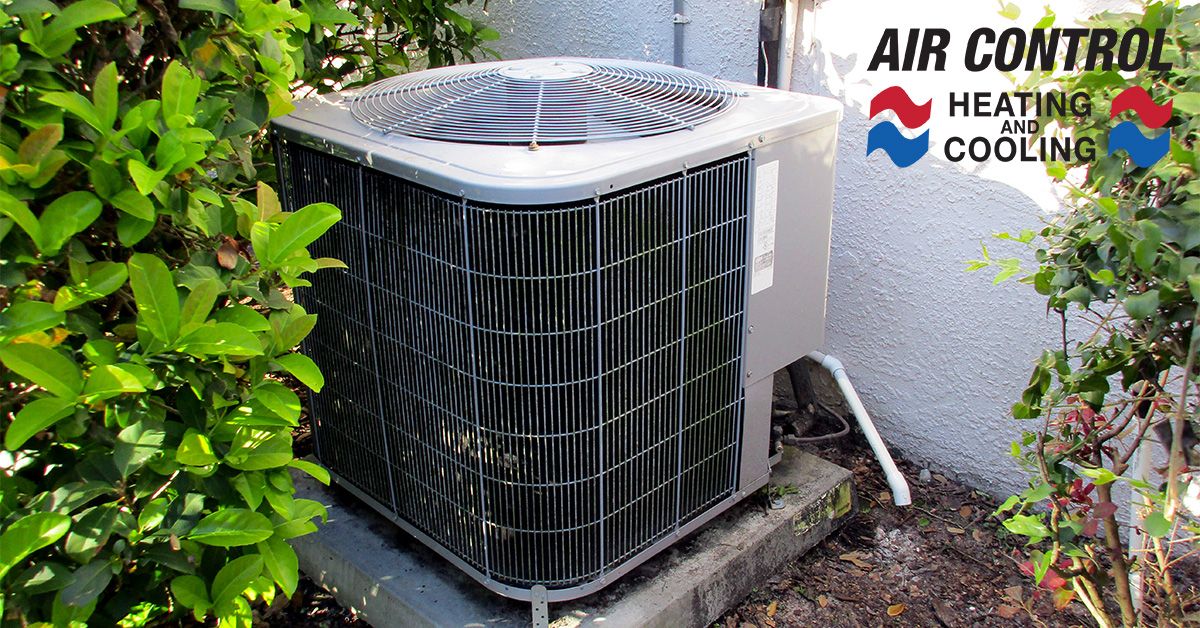Tallahassee AC Experts Explain How to Avoid HVAC Overloading

The extreme heat and humidity that come with summer have arrived in Tallahassee, and you’re undoubtedly relying on your home’s air conditioner to keep your family cool. Unfortunately, the rise in temperatures forces your heating, ventilation, and air conditioning (HVAC) system to work much harder than usual, increasing the chance that it might break down due to system overload. In fact, the four types of HVAC overload in Tallahassee are most likely to occur during the summer months.
At this juncture, you might be wondering what an HVAC overload is and whether you can do anything to avoid it. The HVAC specialists at Tallahassee’s Air Control Heating and Cooling will advise you that there are proactive steps you can take to prevent HVAC overload. The following primer will explain what an HVAC overload is, and provide tips on how to prevent it from happening to your household this summer.
What is an HVAC Overload?
An HVAC overload is a condition in which the HVAC system experiences excessive stress that causes any components to temporarily or permanently malfunction. A noticeable cooling or heating function decrease or a complete breakdown marks an overloaded HVAC system. Overloads often occur when extreme temperatures put HVAC systems under significant prolonged demand.
An overload can impact any HVAC component, and distinct system overloads are characterized as:
- Electrical—a circuit or electrical component draws more current than the system is designed to handle.
- Thermal—HVAC system components overheat.
- Mechanical—stress-related failure of mechanical components (in particular, the compressor, which is one of the most expensive parts to replace in the event of a complete breakdown).
- Complete System—the entire HVAC unit is overloaded beyond its capacity to cool or heat the designated space, often causing continuous running with increased stress on the system.
What Causes an HVAC Overload?
While you cannot distinctly blame the heat for most HVAC overloads in Tallahassee, it usually plays a role due to the increased demand it puts on HVAC systems. With or without increased temperature-related demand, HVAC overloads are caused by the following issues, broken down by type of overload:
Electrical
- Breakdown of electrical components like capacitors and motors.
- Overloaded circuits due to excessive power draw.
- Faulty wiring or connections.
- Ground faults of short circuits.
Thermal
- Low refrigerant levels force the compressor to work harder.
- Fan motor malfunction causing reduced airflow.
- Restricted airflow due to dirty or clogged filters.
- Poor ventilation around the outside unit.
- Clogged or blocked filters reduce airflow.
Mechanical
- Blocked airflows through ducts and/or filters stress mechanical equipment.
- Refrigerant leaks or moisture in the refrigerant system.
- Overstressed compressors.
- Bearing and belt misalignment or wear.
- Other component failures.
- Dirty condenser coils.
Complete System
- Undersized HVAC system for the designated space.
- Prolonged extreme temperature periods.
- Inadequate insulation and/or significant building air leaks.
How to Avoid Overloading Your HVAC System
You can take numerous steps to help prevent an HVAC overload and possibly a costly complete system breakdown. First, you should get a professional assessment to determine whether your HVAC system is properly sized to meet the demand of the space needing conditioning. Undersized systems face potential overload due to demand, while oversized systems face overload due to the need to cycle on and off frequently.
If the HVAC system is properly sized, regular maintenance by skilled NATE-certified technicians is the most important thing you can do to prevent a potential HVAC overload. Regular maintenance helps ensure that all components can meet their cooling (or heating) tasks and checks for proper refrigerant levels, lubrication, electrical connections, coil cleanliness, and other factors to help maintain your HVAC system’s peak performance.
Between regular maintenance sessions, you can help prevent overload by changing your air filter(s) every three months at a minimum, ideally two months. You should also:
- Ensure all vents and registers are clear of debris or obstructions (even a minor blockage can lead to overload).
- Periodically inspect the outdoor unit for damage or any debris blocking vents or compromising condenser coils.
- Don’t set your thermostat at unreasonable temperatures—sure, you want to keep cool, but during extreme heat waves, don’t force your HVAC system to deliver ice-box-like temperatures.
- If your HVAC system is 15 or more years old, consider replacing it. Today’s HVAC systems are more durable, efficient, and less prone to overload than models manufactured two decades ago.
Join Our Air Control Club to Prevent the Likelihood of an HVAC Overload
To prevent HVAC overloads and ensure that your AC system efficiently delivers cool air during Tallahassee’s hot summer months, consider joining one of the two membership tiers of our Air Control Club. Both membership tiers provide two 18-point system inspections per year, which include condenser coil and drain cleaning and fluid and oil replenishment as needed. Other membership benefits include:
- 24-hour priority service.
- Zero or holiday-only overtime charges.
- Reduced service call diagnostic charges.
- 10% service call savings on parts and labor.
- 10% savings on duct cleaning and indoor air quality products.
- $250 discount on replacement units
Contact Us to Prevent HVAC Overloads
If you experience an HVAC overload or want to join a maintenance program that promotes your HVAC system’s peak performance and operation, consult with the NATE-certified experts at Tallahassee’s Air Control Heating and Cooling. For information on our Air Control Club and other heating and cooling services, you can contact us at (850) 562-1234.